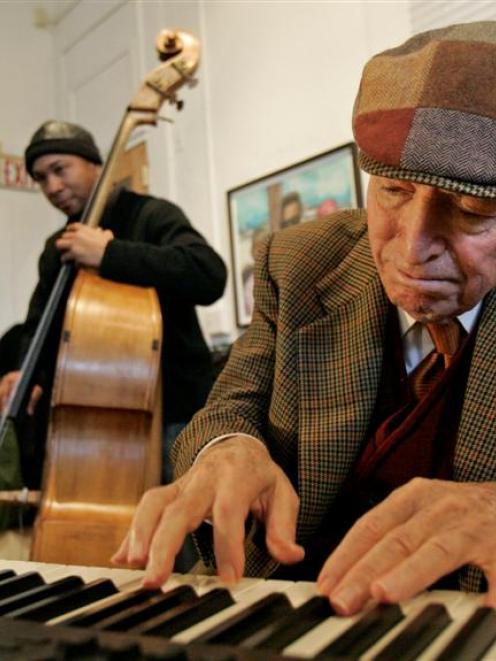
"We've got a great party," Jazz Fest producer Quint Davis said as tickets for the 2009 festival went on sale.
"We want the world to come."
The outdoor musical event spans seven days over two weekends: April 24 to 26 and April 30 to May 3.
The list of performers scheduled for next year also includes Wynton Marsalis, Sugarland, Joe Cocker, Ben Harper, Tony Bennett, the Neville Brothers, and Earth, Wind & Fire.
Jazz Fest founder and executive producer George Wein joked that the crowd for Tuesday's news conference surpassed attendance at the first festival in 1970, as about 300 people witnessed performances by jazz pianist Duke Ellington and gospel singer Mahlia Jackson.
While the crowds and ticket prices have grown exponentially since, Wein said some of the festival's popular draws - food, a gospel tent and even a handful of performers - have remained constant.
This year, the festival returned to its seven-day format over two weekends. It had been scaled to back to six days after Hurricane Katrina flooded much of New Orleans in 2005.
The Neville Brothers, the traditional closing act of Jazz Fest for more than a decade, performed at the festival this year for the first time since Katrina scattered the brothers around the country. They're scheduled to perform again in 2009.
Attendance this year was between 375,000 and 400,000 people. About 400,000 people attended Jazz Fest in the spring of 2005, a few months before Katrina struck.
For the 2009 event, prices for general admission tickets are frozen at $40 if purchased in advance and $50 at the gate. But Davis said a package of discounted tickets will be available for the first time, an idea developed before the country's economic meltdown.
Jazz Fest has been a boon for the city's recovery since Katrina, boosting the hotel industry and fueling two of the biggest weekends of the year for restaurants.
J. Stephen Perry, president and CEO of the New Orleans Convention and Visitors Bureau, said he expects Jazz Fest and other New Orleans attractions to endure the recession better than other cities' tourist draws.
"This is the year that our culture may actually save us economically," he said. "
Travel is going to become softer across the United States, but people are looking for one thing: They're looking for something that's real. They're looking for something that's authentic."











